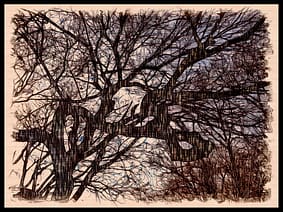
No-self as a Concept
Pretty much a decade ago, I read a book called ‘What the Buddha taught’ whilst travelling in Malaysia and the impact is still with me. While I’m not a practising Buddhist now, certain ideas have had a significant impact on my thought processes.
Two notions, in particular, struck me as very profound teachings. The doctrine of ‘no soul’ and that of ‘conditioned genesis’ led me to conceptualize the essence of no-self. My interpretation of no soul is that the idea is simple in that it says there is nothing eternal or everlasting existing within us that we can grasp or point to.
Prior to acknowledging this I had on some level always believed I had a soul even if I wouldn’t have called myself a Christian. It just seemed a given that I would exist forever even if I had not considered what existing eternally would mean.
Several other passages in the book were of great interest to me. I was captivated by the idea of ‘conditioned genesis’. To give the concept justice would be too long-winded to explain but essentially I understood it then as follows; our limited knowledge of the actual nature of reality traps us in a cycle of suffering and because of this, our individual human conditioned consciousness arises.
I tried to reason with the concepts. The more I thought about arising consciousness, the more I became aware of the constructed nature of my own self. What could be the core and unchanging thing that bound my personality together?
I thought it may be a combination of memory and mental faculties that directed how I made decisions. But, if this was so, it was hard to suggest that I was anything more than the sum of the parts. My self could only be a creation. Any idea of ‘I’ (or self) was a construct produced by my body and personality interacting with other bodies and personalities through events in the world.
Lasting Impact
It was shortly after digesting these concepts that it hit me – I felt for the first time ever like I didn’t exist, and it felt peaceful. It was as if I had been liberated from some unseen and unknown force that had held me back without my awareness of it. The best analogy I can think of is being so used to a kind of background noise that you don’t notice its presence, then when it suddenly stops you notice the lack of sound.
At that time, I was noticing the lack of a central self to my being and through noticing I was gradually overcome by appreciation. On a day-to-day basis, I was able to appreciate each breath that I drew into my body and each breath I expelled back into the air around me. These feelings of mild elation stayed with me for the duration of that trip and into the first few months of university life.
Something I heard in an Alan Watts lecture recently struck a chord with me and reminded me of the power of not conceptualizing a self. There is a Christian saying that goes;
‘If you are going to turn over a new leaf, you mustn’t let the Devil know’
This is because the Devil will do all in his power to oppose your turning over a new leaf, to make you fail in your efforts. From a certain perspective, the Devil, or rather that internal force which will always work against us, cannot hinder us if we never let our deepest selves know our intentions.
My interpretation of this is that not thinking about an important new endeavour or undertaking is not letting the Devil know. Our inner critic will not be able to undermine us if it doesn’t realise what we are planning. To cache what I’m trying to say in Buddhist turn of phrase would be to say; to act through no-self and without intention is a means to escape karma.
No-self in the Everyday World
The difficulty with this way of escaping karma, and the associated cycle of suffering, is that the more we interact with other people the more that these others recognize and reify an independently existing self. To deal with this requires concentration and focus, mental facets that I personally didn’t develop in line with cultivating compassion in the early years of adult life. As previously mentioned I have had various spiritual wanderings and I am not a practising Buddhist. I even think I originally misinterpreted some of these ideas.
However, I am now of a firm belief that seriously contemplating no-self in the right context means we will never undermine ourselves. While this will not lead immediately to blossoming confidence and assuredness of thoughts it is certainly a step in the right direction.
Pingback: Buddhist fashion? How Zen influences the design process - CamZhu